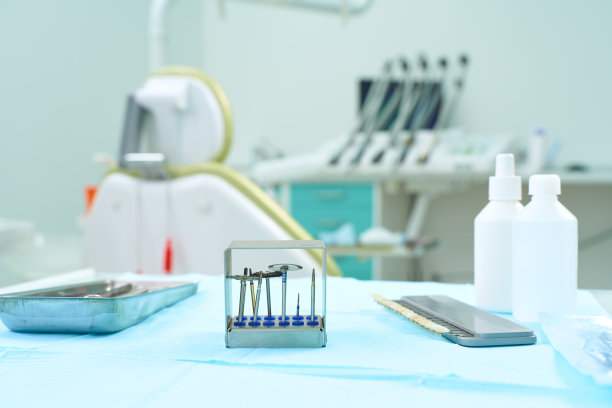Summary: The process of extracting a tooth is not merely a physical intervention; it often requires navigating a complex emotional landscape that significantly impacts both dental health and personal well-being. This article explores the emotional journey associated with tooth extraction, detailing how the anticipation, the extraction itself, and the subsequent recovery shape ones mental health. Furthermore, it examines the broader implications for dental health and overall well-being. Understanding these facets can provide patients with better insight and coping mechanisms, ultimately promoting a healthier relationship with their dental care.
1. Navigating Pre-Extraction Anxiety

The anticipation of tooth extraction often brings about heightened levels of anxiety. Many patients visualise the procedure with dread, fearing pain and complications that may arise. This anxiety can manifest in varying degrees; for some, it may lead to sleepless nights, while others may experience physical symptoms such as a racing heart or sweating. It is essential to acknowledge these feelings as a normal response to the unknown.
Moreover, the societal stigma associated with dental visits can exacerbate pre-extraction anxiety. Many people harbor negative experiences or stories from their past that contribute to an overall fear of dentists. These anxieties are compounded by the loud sounds and unfamiliar instruments associated with the dental office, making the waiting period feel unbearable.
However, coping strategies such as mindfulness and deep breathing exercises can be effective in alleviating these feelings. Consulting with dental professionals about concerns and seeking their guidance can prepare patients mentally and emotionally for the extraction, transforming anxiety into a more manageable experience.
2. The Emotional Impact During Extraction
The day of the extraction can be filled with mixed emotions. As patients sit in the dentists chair, fear may quickly shift to impatience and frustration. The noise of surgical instruments and the pressure of dental work can be overwhelming. Understanding that these feelings are common is the first step to coping effectively.
During the extraction, patients may feel a lack of control, which can lead to feelings of vulnerability. The emotional response can vary widely; while some patients can remain calm and relaxed, others may succumb to panic. It’s important for dental professionals to be aware of how patients are feeling throughout the procedure, helping to reassure them and providing support.
Additionally, post-extraction emotional responses can surface as patients process their experience. Feelings of relief might coexist with unease about the recovery process or the impact on future dental health, making it essential for healthcare providers to address these emotions comprehensively.
3. Recovery and Its Psychological Toll
After the extraction, the recovery period presents its challenges, both physically and emotionally. Patients may experience discomfort or pain that can cloud their emotional state. The initial days of recovery often involve restricted diets and limitations on normal activities, which can lead to feelings of frustration or even isolation.
As patients navigate their recovery, they may grapple with self-image issues, especially if the extraction was prominent or visible. These feelings can be detrimental to ones mental health, impacting self-esteem and confidence. It’s crucial to recognize the relationship between physical healing and emotional well-being during this time.
In fostering a positive healing environment, follow-up care and regular communication with dental professionals can significantly ease patients emotional burdens. Hearing that recovery is progressing as expected can reassure patients, helping them feel more in control and supported during this vulnerable time.
4. Long-Term Effects on Dental Health
The emotional journey of tooth extraction can have lasting effects beyond the immediate recovery period. For some, overcoming the fear associated with dental care can lead to a renewed commitment to oral health. Facing daunting experiences may foster a stronger resolve to maintain regular dental visits and hygiene routines.
On the flip side, negative emotions surrounding tooth extraction may lead to avoidance of future dental care. Patients grappling with anxiety or fear might neglect routine check-ups, compromising their long-term dental health. These issues can create a vicious cycle where past trauma leads to subsequent dental problems.
Promoting a supportive and empathetic dental environment can mitigate these long-term effects. Encouraging open conversations about fears and anxieties can empower patients to regain control of their dental health, leading to positive outcomes. Dental professionals play a pivotal role in transforming patients emotional journeys into a path toward sustainable personal well-being and dental health.
Summary:
The emotional journey of tooth extraction is multifaceted, involving anxiety, vulnerability, and potential long-term consequences on both dental health and personal well-being. By acknowledging these emotional responses and implementing effective coping strategies, patients can navigate their experiences better, resulting in improved dental care over time.
This article is compiled by Vickong Dental and the content is for reference only.
Vickong Dental
Vickong Dental is a large medical group established in Hong Kong in 2008 by professors from well-known medical universities in Guangdong and Hong Kong, as well as medical doctors from key national '985' universities (including Master's supervisors and senior professors). The chain of branches brings together expert dentists with PhDs and Master's degrees from Hong Kong and Mainland China, committed to providing high-quality dental treatment.
"Vickong Dental Practices the University Motto of 'Healing and Serving Society,' with a Stable Operation for Sixteen Years. It Has Been honored with Hong Kong Enterprise Leaders's Choice,' and is a Global Trusted Implant Center for the Nobel Implant System. Recommended by Hong Kong Metro Broadcast and Guangdong Television, it Serves Customers from Over Thirty Countries and Regions, Gaining the Trust and Favor of Citizens from the Guangdong-Hong Kong-Macau Greater Bay Area and Surrounding Cities.

Thousands of customers' unanimous praise
The most recognized and highly recommended dental service by customers in the Guangdong-Hong Kong-Macau Greater Bay Area
We Ensure You Receive Detailed Care and Attention Here
Hong Kong standards, Shenzhen prices, Your Trusted English-speaking dentists

Vickong Dental Medical-Grade Instrument Disinfection Process
Vickong Dental Medical-Grade Instrument Disinfection Process

Vickong Dental Chain: A Warm and Comfortable Environment for Treatment






Appointment Hours

Q&A
Why choose Vickong Dental?
Vickong Dental practices the university motto 「Medicine to Benefit Society」, with each branch bringing together highly qualified dentists with doctoral and master’s degrees from Hong Kong and the Mainland, and has maintained seventeen years of steady operation。Recipient of 「2024 Hong Kong Enterprise Leaders Brand」, 「2025 Hong Kong Enterprise Leaders Brand」, a Nobel Biocare Global Trusted Implant Center, and a brand recommended by Metro Radio Hong Kong and Guangdong TV。
To date, we have served customers from more than thirty countries and regions,earning exceptionally high word-of-mouth recognition and trusted recommendations from residents across the Guangdong-Hong Kong-Macao Greater Bay Area and surrounding cities
We have eight major branches in Zhuhai、Shenzhen,and a consultation and service assurance center in Hong Kong,so you can book a free consultation at any time for any questions,which is very reassuring.
If I do not accept the quotation after the CT scan, will I be charged??
No! As long as the actual treatment has not started, you will not be charged any fees.
Will there be any additional charges during the treatment process?
No, there won’t be any additional charges. Before treatment begins, we will clearly explain the treatment plan and its corresponding fees. Only after the patient agrees and signs the consent form will we proceed with the dental service.
Can I pay in Hong Kong dollars?
Yes. Vickong Dental accepts payment in Hong Kong dollars. The amount will be converted based on the exchange rate of the day, and the applicable rate will be clearly communicated to you in advance.
Can I reschedule my appointment at any time?
Yes. Please contact us via **WeChat** or **WhatsApp** as early as possible, providing your original appointment time and details, along with your preferred new date and time slot for rescheduling.













